
KENYON REVIEW
Scope & Guideline
Navigating the Landscape of Literary Theory.
Introduction
Aims and Scopes
- Exploration of Human Experience:
The journal focuses on narratives that delve into the intricacies of human emotions, relationships, and societal challenges, often reflecting on personal and collective histories. - Diverse Literary Forms:
It publishes a variety of literary genres, including poetry, fiction, and creative nonfiction, showcasing innovative storytelling techniques that push the boundaries of traditional forms. - Cultural and Social Commentary:
Many contributions engage with cultural, political, and social issues, offering insights into contemporary life and historical contexts that shape human understanding. - Focus on Emerging Voices:
The Kenyon Review emphasizes the importance of new and diverse literary voices, providing a platform for underrepresented perspectives in the literary community. - Interdisciplinary Approaches:
The journal often incorporates interdisciplinary themes, blending literature with other fields such as art, philosophy, and science, enriching the reader's experience.
Trending and Emerging
- Interdisciplinary Narratives:
Recent works increasingly blend literary forms with other disciplines, such as visual arts and science, creating rich, multifaceted narratives that engage readers on multiple levels. - Exploration of Identity:
There is a growing focus on themes of identity, including race, gender, and sexuality, reflecting broader societal conversations about representation and self-exploration. - Environmental and Ecological Themes:
A trend towards eco-criticism is evident, with many pieces addressing environmental issues and humanity's relationship with nature, indicating a heightened awareness of ecological concerns. - Psychological Depth:
Emerging narratives often delve into psychological complexities, exploring mental health, trauma, and introspection, resonating with contemporary readers' interests in emotional authenticity. - Nonlinear Storytelling:
An increase in nontraditional, nonlinear storytelling techniques is noticeable, with authors experimenting with time, perspective, and structure to challenge readers’ expectations.
Declining or Waning
- Traditional Narrative Structures:
There has been a noticeable decrease in works that adhere to conventional narrative forms. The journal seems to be moving towards more experimental and fragmented storytelling techniques. - Strictly Genre-Based Writing:
Works that strictly fit into predefined genres, such as traditional romance or mystery, are appearing less frequently, suggesting a shift towards more hybrid and genre-blending pieces. - Focus on Regionalism:
While regional themes have historically played a role in the journal, recent titles indicate a waning interest in strictly regional narratives, possibly in favor of more universal and global themes. - Conventional Poetic Forms:
There is a noticeable decline in the publication of poems that adhere to traditional structures, with a growing preference for free verse and experimental poetry. - Straightforward Political Commentary:
The journal appears to be moving away from overt political commentary, favoring subtler, more nuanced explorations of political themes through personal narratives.
Similar Journals
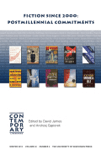
CONTEMPORARY LITERATURE
Connecting Scholars to the Pulse of Modern LiteratureCONTEMPORARY LITERATURE, published by the prestigious University of Wisconsin Press, stands as a vital platform for scholars and enthusiasts within the field of literary studies. With its ISSN 0010-7484 and E-ISSN 1548-9949, this journal has established itself as a respected source of innovative research across various dimensions of literature and literary theory. Holding an impressive Q2 ranking in the 2023 category of Arts and Humanities, this publication not only reflects current trends but also fosters critical discourse around contemporary authors and movements from 2002 to 2024. Engaging articles submitted to CONTEMPORARY LITERATURE enhance our understanding of narrative forms and their cultural relevance, making it an essential read for academics, professionals, and students alike. While the journal is not open access, its impact within the literary community continues to grow, as evidenced by its Scopus rank of #616 out of 1106. For those dedicated to exploring the evolving landscape of literature, CONTEMPORARY LITERATURE is a must-have in one's scholarly toolkit.
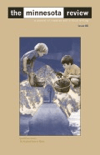
MINNESOTA REVIEW
Pioneering Insights in Contemporary LiteratureMINNESOTA REVIEW, published by DUKE UNIVERSITY PRESS, is a notable platform in the field of Literature and Literary Theory, signifying its commitment to advancing critical discourse and scholarship. With an ISSN of 0026-5667 and an E-ISSN of 2157-4189, this journal operates without an open access model, reflecting the traditional dissemination practices in the humanities. Covering a diverse range of topics, MINNESOTA REVIEW has been influential since its inception, showcasing exceptional literary analysis and theoretical explorations from 2002 to 2007 and again from 2009 to 2024. The journal currently holds a Q4 category ranking in Literature and Literary Theory for 2023 and ranks #470 out of 1106 in Scopus, emphasizing its academic vitality and research relevance within the 57th percentile. MINNESOTA REVIEW is dedicated to providing a critical forum for scholars, making it an essential resource for researchers, educators, and students interested in contemporary literary debates and theories.

NEW ORLEANS REVIEW
Celebrating the Intersection of Tradition and ModernityNEW ORLEANS REVIEW is a distinguished literary journal published by Loyola University that captures the essence of creativity and critical discourse in the realms of literature and the arts. Issued under the ISSN 0028-6400, this journal provides a platform for both emerging and established voices, fostering a rich dialogue among researchers and practitioners in the field. Through works that span various genres, NEW ORLEANS REVIEW not only contributes to the academic landscape but also engages with contemporary cultural narratives and social issues, making it an invaluable resource for scholars, students, and professionals alike. While access is not open, the journal's curated content and extensive insights into literary and visual arts merit attention within the competitive ranks of arts and humanities. Although it has been indexed in Scopus from 2002 to 2014 and has a varied impact reflected in its ranking percentile, its commitment to quality and innovative thinking remains steadfast, inviting critical engagement from its dedicated readership.

CANADIAN LITERATURE
Advancing Critical Discourse in Canadian Literary StudiesCanadian Literature is a distinguished journal published by the University of British Columbia, dedicated to exploring the rich landscape of Canadian literary studies. With its strong impact in the field, evidenced by its Scopus ranking of #197 out of 845 in the category of Arts and Humanities, specifically in Literature and Literary Theory, this journal serves as a pivotal platform for both emerging and established scholars. Covering a wide range of topics related to Canadian literature and culture, it aims to foster an interdisciplinary dialogue that reflects the diverse voices and narratives shaping the literary scene in Canada. Though the journal transitioned its coverage in Scopus after 2019, it continues to provide valuable insights and critical discourse in its publications. Researchers, students, and professionals looking to deepen their understanding of Canadian literature will find Canadian Literature an essential resource for contemporary scholarship.
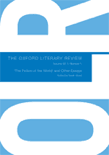
OXFORD LITERARY REVIEW
Unveiling New Perspectives in Literary TheoryOXFORD LITERARY REVIEW, published by EDINBURGH UNIVERSITY PRESS, is a pivotal academic journal in the fields of Cultural Studies and Literature and Literary Theory. With an ISSN of 0305-1498 and an E-ISSN of 1757-1634, the journal has been a crucial forum for interdisciplinary dialogue since its inception in 1996, continuing to uphold its scholarly merit through 2024. Although it currently falls within the Q4 quartile rankings in both cultural studies and literary theory, it provides a unique platform for emerging voices and critical perspectives that enrich our understanding of literature's role in society. The journal operates without open access, encouraging subscription-based access to its rich archives and diverse range of articles. With growing interest in its contributions marked by its Scopus ranks—597th in Literature and Literary Theory and 1002nd in Cultural Studies—OXFORD LITERARY REVIEW remains an essential resource for researchers, professionals, and students seeking to explore contemporary issues in literary discourse.
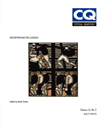
CRITICAL QUARTERLY
Fostering scholarly conversations that shape cultural understanding.CRITICAL QUARTERLY, published by Wiley, is a distinguished journal that has been at the forefront of critical discourse since its inception in 1959. With an ISSN of 0011-1562 and an E-ISSN of 1467-8705, it serves as a vital resource in the fields of Cultural Studies and Literature and Literary Theory, demonstrating a commendable influence as evidenced by its placement in Q3 and Q2 quartiles respectively. The journal's impact factor, while not explicitly listed, is inferred from its reputable standing, with Scopus rankings placing it within the 54th and 29th percentiles in its respective categories. By offering a platform for rigorous analysis and diverse theoretical perspectives, CRITICAL QUARTERLY aims to foster scholarly dialogue and advance the study of literature and culture. Situated in the United States, the journal's commitment to academic excellence makes it an invaluable asset for researchers, professionals, and students dedicated to the exploration of critical theory and cultural critique.

MASSACHUSETTS REVIEW
Nurturing Emerging Voices in LiteratureThe Massachusetts Review (ISSN: 0025-4878, E-ISSN: 2330-0485) is a prominent literary journal published by the University of Massachusetts, located in the United States. Since its inception, the journal has committed itself to fostering the arts and humanities, presenting a diverse spectrum of poetry, fiction, essays, and critical reviews that engage with contemporary cultural discourse. With a 2023 Scopus rank placing it in Q3 for Literature and Literary Theory and Q4 for Visual Arts and Performing Arts, the Massachusetts Review serves as an essential platform for both established and emerging voices, enriching the conversation in these fields. Although not an Open Access journal, it provides invaluable access to thought-provoking content that challenges and inspires its audience. Situated at the intersection of literary excellence and critical thought, this journal continues to uphold its mission to stimulate intellectual engagement and to celebrate the creative arts.
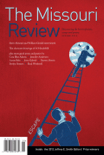
Missouri Review
Crafting Tomorrow’s Literary Landscape Today.The Missouri Review, published by the University of Missouri, College of Arts and Science, is a prominent literary journal that serves as a platform for innovative and diverse voices in literature and literary theory. Established as a key publication within the United States, it holds an ISSN of 0191-1961 and an E-ISSN of 1548-9930, reflecting its reach in both print and digital formats. With a current ranking in the Q4 quartile for the year 2023, the journal is positioned in the lower echelon of the literature field as per Scopus rankings, emphasizing the growth potential for emerging scholars and established authors alike. The Missouri Review actively contributes to the scholarly discourse in literature, aiming to enhance understanding through the publication of original short stories, essays, and poetry that challenge and refine literary conventions. Researchers, professionals, and students interested in contemporary literary developments and trends should consider this journal a vital resource for insights and inspiration.
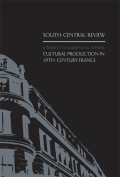
South Central Review
Illuminating Innovations in Cultural DiscourseSouth Central Review, a distinguished academic journal published by Johns Hopkins University Press, serves as a vital platform for scholarly discourse in the fields of cultural studies, literature and literary theory, philosophy, and the visual and performing arts. With an ISSN of 0743-6831 and an E-ISSN of 1549-3377, this journal is dedicated to highlighting innovative research and critical analyses that explore the complexities of Southern culture and its broader implications. Although it operates without an open access option, the journal is recognized for its rigorous peer-review process and contributions to contemporary academic dialogue, holding Q3 and Q4 rankings across several disciplines as of 2023. The convergence of ideas and perspectives from diverse academic backgrounds positions the South Central Review as an essential resource for researchers, professionals, and students seeking to deepen their understanding of the cultural narratives shaping our world today.

HUDSON REVIEW
Crafting a Legacy of Rigorous Literary DiscourseHUDSON REVIEW is a prestigious literary journal published by HUDSON REVIEW INC, based in New York City. Established to foster an appreciation for the arts and literature, this journal provides a platform for in-depth literary analysis, critical essays, and poetry exploring the complexities of human experience. With its extensive history of publication and established reputation, HUDSON REVIEW plays a significant role in the literary field, attracting contributions from esteemed authors and scholars. While the journal operates under a traditional model without open access, it nevertheless offers valuable insights and promotes rigorous discourse among researchers, professionals, and students interested in the evolving landscape of literature and criticism. Noteworthy for its contributions from 2002 to 2011 in Scopus, the journal remains an essential resource for anyone looking to deepen their understanding of contemporary literary trends.